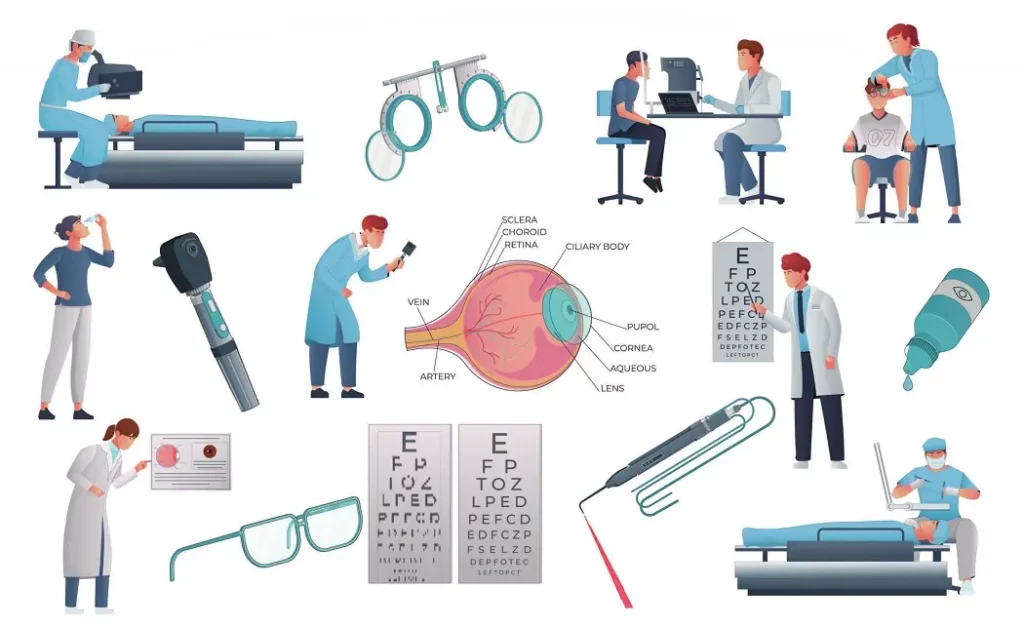All Categories
Featured
When it concerns preserving your vision and protecting against eye-related conditions, nourishment plays an essential duty. The foods we consume not just fuel our bodies yet likewise provide essential nutrients that support eye wellness. A well balanced diet abundant in specific vitamins, minerals, and anti-oxidants can considerably influence the longevity and top quality of your vision.
Key Nutrients for Eye Health
Vitamin A. Vitamin A is basic for maintaining great vision, particularly in low-light problems. It adds to the manufacturing of rhodopsin, a pigment found in the retina that aids spot light. Foods rich in vitamin A consist of carrots, wonderful potatoes, spinach, and other leafy eco-friendlies.
Lutein and Zeaxanthin. These carotenoids function as all-natural sunblocks, filtering system hazardous blue light and protecting the eyes from oxidative damages. Lutein and zeaxanthin are abundant in kale, broccoli, corn, and eggs.
Vitamin C. An antioxidant giant, vitamin C assists preserve the health of capillary in the eyes and might decrease the threat of cataracts. Oranges, strawberries, bell peppers, and tomatoes are outstanding sources of this vitamin.
Vitamin E. Vitamin E deals with oxidative stress and anxiety and safeguards the eyes from age-related damage. Almonds, sunflower seeds, and hazelnuts are great options to include in your diet plan.
Omega-3 Fat. Omega-3s are essential for the wellness of the retina and play a duty in preventing dry eye syndrome. Fatty fish such as salmon, tuna, and mackerel, along with walnuts and flaxseeds, are rich in these healthy and balanced fats.
Zinc. Zinc supports the transportation of vitamin A from the liver to the retina to generate melanin, a safety pigment in the eyes. Oysters, beef, and strengthened grains are outstanding resources of zinc.
How Nutrition Helps Prevent Eye Diseases.
![]()
Age-Related Macular Deterioration (AMD): Antioxidants like lutein, zeaxanthin, vitamins C and E, and zinc have actually been revealed to reduce the danger of AMD progression.
Cataracts: A diet abundant in vitamin C and other anti-oxidants might slow cataract development by reducing oxidative damages.
Dry Eye Disorder: Omega-3 fats can relieve signs and symptoms of dry eyes by boosting the high quality of the tear movie.
Practical Tips for an Eye-Healthy Diet Plan
Include a variety of vibrant vegetables and fruits right into your dishes to guarantee a variety of nutrients.
Select lean healthy proteins and entire grains to support general wellness.
Keep moistened to keep your eyes moist and lower the danger of dryness.
Limit processed foods and added sugars, which can increase the threat of problems like diabetes mellitus that impact eye wellness.
Final Thought
![]()
Excellent nutrition is a foundation of eye health and wellness. By including nutrient-dense foods in your diet, you can shield your vision and reduce the risk of eye conditions.
Key Nutrients for Eye Health
Vitamin A. Vitamin A is basic for maintaining great vision, particularly in low-light problems. It adds to the manufacturing of rhodopsin, a pigment found in the retina that aids spot light. Foods rich in vitamin A consist of carrots, wonderful potatoes, spinach, and other leafy eco-friendlies.
Lutein and Zeaxanthin. These carotenoids function as all-natural sunblocks, filtering system hazardous blue light and protecting the eyes from oxidative damages. Lutein and zeaxanthin are abundant in kale, broccoli, corn, and eggs.
Vitamin C. An antioxidant giant, vitamin C assists preserve the health of capillary in the eyes and might decrease the threat of cataracts. Oranges, strawberries, bell peppers, and tomatoes are outstanding sources of this vitamin.
Vitamin E. Vitamin E deals with oxidative stress and anxiety and safeguards the eyes from age-related damage. Almonds, sunflower seeds, and hazelnuts are great options to include in your diet plan.
Omega-3 Fat. Omega-3s are essential for the wellness of the retina and play a duty in preventing dry eye syndrome. Fatty fish such as salmon, tuna, and mackerel, along with walnuts and flaxseeds, are rich in these healthy and balanced fats.
Zinc. Zinc supports the transportation of vitamin A from the liver to the retina to generate melanin, a safety pigment in the eyes. Oysters, beef, and strengthened grains are outstanding resources of zinc.
How Nutrition Helps Prevent Eye Diseases.

Age-Related Macular Deterioration (AMD): Antioxidants like lutein, zeaxanthin, vitamins C and E, and zinc have actually been revealed to reduce the danger of AMD progression.
Cataracts: A diet abundant in vitamin C and other anti-oxidants might slow cataract development by reducing oxidative damages.
Dry Eye Disorder: Omega-3 fats can relieve signs and symptoms of dry eyes by boosting the high quality of the tear movie.
Practical Tips for an Eye-Healthy Diet Plan
Include a variety of vibrant vegetables and fruits right into your dishes to guarantee a variety of nutrients.
Select lean healthy proteins and entire grains to support general wellness.
Keep moistened to keep your eyes moist and lower the danger of dryness.
Limit processed foods and added sugars, which can increase the threat of problems like diabetes mellitus that impact eye wellness.
Final Thought

Excellent nutrition is a foundation of eye health and wellness. By including nutrient-dense foods in your diet, you can shield your vision and reduce the risk of eye conditions.
Latest Posts
Find Out Reduce Expenses on Car Maintenance with Montclare Auto Repair’s Special Deals
Published May 23, 25
1 min read
Explore WyHy Federal Credit Union Maximizes Your Savings on Loans and Savings
Published May 22, 25
1 min read
Explore Limited-Time Auto Repair Specials in Chicago at Montclare Auto Repair
Published May 21, 25
1 min read
More
Latest Posts
Find Out Reduce Expenses on Car Maintenance with Montclare Auto Repair’s Special Deals
Published May 23, 25
1 min read
Explore WyHy Federal Credit Union Maximizes Your Savings on Loans and Savings
Published May 22, 25
1 min read
Explore Limited-Time Auto Repair Specials in Chicago at Montclare Auto Repair
Published May 21, 25
1 min read